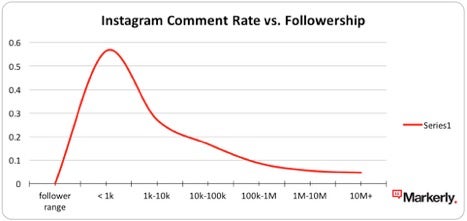Micro-influencers Bring Mega ROI for Brands Most of the time, celebrity influencers aren't worth the money.
By Sarah Ware Edited by Dan Bova
Opinions expressed by Entrepreneur contributors are their own.

The expansion of social media over the last several years has given brands a direct line of communication with consumers like they have never had before. Social platforms have become the go-to for product announcements, customer engagement initiatives and customer service issues. But one initiative has started to stand out among them all -- advertising and marketing.
Brands want to spend their money advertising where the consumers are most apt to see and engage with their content, and social media is a hotbed of brand engagement. A recent report said the average American checks their social media profiles 17 times a day, which is basically once every hour they are awake. So the strategy for brands seems simple -- find some mega-celebrities with millions of followers, pay them to post about your brand, and watch the money roll in, right? Wrong.
Markerly recently completed a data study that shows utilizing a mega-celebrity just isn't the best option for the majority of brand influencer campaigns. Sure, the follower counts are eye-popping and have value in terms of mass appeal, but when you're looking to market a product or service that is meant for a niche audience, and you need a trusted and influential member of that circle, mega-celebrities aren't your best bet. That's when you turn to micro-influencers -- folks with smaller, more loyal followings who have significant clout within their respective communities. Here's why:
Related: 3 Qualities to Look For in a Social Media Influencer
Increased engagement.
Most would assume that more followers mean more engagement, right? According to our recent study on Instagram engagement, as total followers go up, the engagement rate actually decreases. Influencers with follower counts of 1K-10K have a like rate of 4 percent, compared to just 1.6 percent for those with follower counts of more than 10M. Comment rates also decline significantly, as those with 10K-100K followers are four times more likely to get a comment than those in with more than 10M followers.
Of course, as you decrease follower counts, you lose reach while adding that extra engagement. Conversely, as you increase followers you gain back that broader reach but lose the engagement that drives sales and brand loyalty. As such, we've found that the sweet spot for influencers is in the 10K-100K follower range. This results in a broad enough reach while also ensuring a solid amount of engagement.
Related: 3 Strategies for Finding the Best Influencer to Boost Your Brand


Bang for your buck.
Let's face it, utilizing a celebrity as part of your influencer campaign is not going to be cheap and could likely bust your entire budget. For $25,000, you can run a campaign with several micro-influencers within your chosen verticals and get in front of roughly five million consumer followers. That same price figure will barely get a conversation started with a celebrity -- it will run you well into the six figures to work with the Kardashians or Jenners -- and all you're really paying for is bragging rights. Why spend all of that money if it isn't going to move the needle? Where does the ROI come from?
Consider a major sports brand that is launching a line of shoes specifically for serious runners. Should they pay into the hundreds of thousands of dollars to have Selena Gomez (98.2M followers) post a photo to Instagram wearing the shoe? Or is there more value to use an influencer like Meb Keflezighi (30K Instagram followers), who is one of the most successful marathon runners in the world today? If the brand wants to engage with an audience that they know is directly in the market for their products, they choose Keflezighi over Gomez any day.
Related: Why Converting to Instagram Business Is Not a Winning Brand Strategy
As a brand, you want to engage with consumers who are passionate about the products you are selling. Whether it's athletic wear, mobile apps/games, clothes or food/beverage, utilizing micro-influencers will drive visibility and engagement, and ultimately brand loyalty and sales, without a mega-sized budget.











